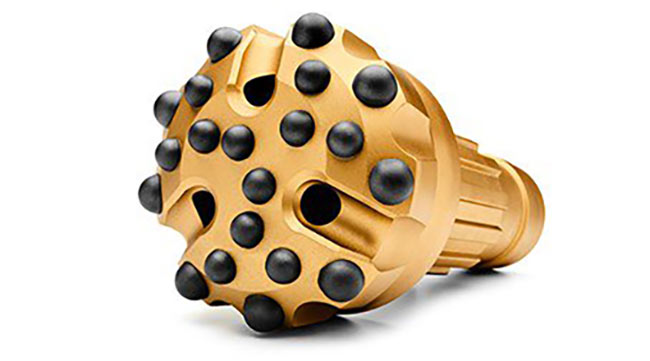Chinese rock drills and consumables 15 Nov 2018
Chinese manufacturers claim that the quality of their steel fabrication and tunnelling equipment has improved dramatically. This is supported by the inroads they have made in Australia, the US, and increasingly in European markets.
Is this improvement in quality, especially of hard-wearing steels used to manufacture tools, real or a marketing claim? If judged on quality accreditations, then the rise in manufacturing standards is real. The companies support their advances with prestigious quality standards, internationally recognised accreditations and certifications, putting their output on a level with more established Japanese, European and North American manufacturers.
However, the feeling is still prevalent in the marketplace that Chinese companies are making inroads into developed markets through a price-led strategy that reflects a poorer quality output. Is this true?
Duncan McGregor is one of the most respected names in the global construction equipment manufacturing industry. He has held senior positions at Metso and Sandvik, where he was responsible for the drilling, crushing and breaking divisions. Perhaps surprisingly, given his background with steel manufacturing and translating this into market-leading products, McGregor does not doubt that the improvements in quality are real.
On a recent visit to a foundry in Shanghai, McGregor noted these improvements firsthand. "The production of steel and the quality therein is as good as I have seen in Europe, and in certain areas I would say that some Chinese companies are now surpassing (European) quality standards. In quality control (at this specific foundry), for example, the checks of production output are now in advance of European companies, with each component being x-rayed for any possible defects before they were sent to the client companies. To put this in context, most European manufacturers x-ray components, but not all produced. A ratio is normally chosen, generally 1:10 or 1:20.”
Perhaps this is not really that surprising; China has undergone massive development and has advanced technologically in leaps and bounds in recent years. The high-speed railway link (using home-produced materials for a highly advanced service) is now considered to be one of the world’s finest. Likewise, Chinese railway manufacturers are now exporting their offerings based on technology and materials quality. The same can be seen with numerous other industries, such as Chinese expertise and technology being used to help construct the UK’s latest nuclear power station at Hinckley point.
While there is often a western assumption that materials and equipment used in the home Chinese market are inferior to those used in the west, this does not seem to be the case. Most Chinese rock-tool manufacturers (and those of underground drill rigs) cite links and access to the research and development facilities of leading Chinese Universities that also supply expertise on various projects throughout the world.
Companies such as Sandvik, Atlas Copco and Metso have histories going back to the 19th century, possessing expertise that has seen them at the forefront of manufacturing. These companies pride themselves on producing steel with qualities way in advance of competing entities. Their products are universally acknowledged as being superior to anything else in the market. Is this still the case? And if so, how long will they maintain this position of premium pricing due to expertise and material quality?
The way in which Chinese rock tools are gaining customers in Europe, Asia, North America and Australia would suggest that customers are happy with equipment quality from Chinese companies. This may be a complex equation of paying for what you get, but serious thought should be given as to why customers are trialling and using Chinese equipment. No tunnelling contractor is going to waste money on a product that is unable to do its job, no matter how cheap it is.
It may be that more established manufacturers are producing over-engineered equipment and services in a market unwilling to pay a premium price for quality standards that simply are not needed. The equipment may still be what the market chooses, but is this the case regarding tools and bits? Most Chinese rock-tool manufacturers are not only producing tools and bits for their own offering, but deliberately producing equipment to match that of Sandvik and Atlas Copco. If they were unable to match the quality of those tools and bits, then drilling would come to a halt: any drill rig is only as good as the tools its uses.
References
- China taking the bit by the teeth – TunnelTalk, November 2018
- The rise of Chinese manufacturers – TunnelTalk, December 2016
- Survey of Chinese drilling jumbos – TunnelTalk, December 2016
|
|
|
|
|
Add your comment
- Thank you for taking the time to share your thoughts and comments. You share in the wider tunnelling community, so please keep your comments smart and civil. Don't attack other readers personally, and keep your language professional.




